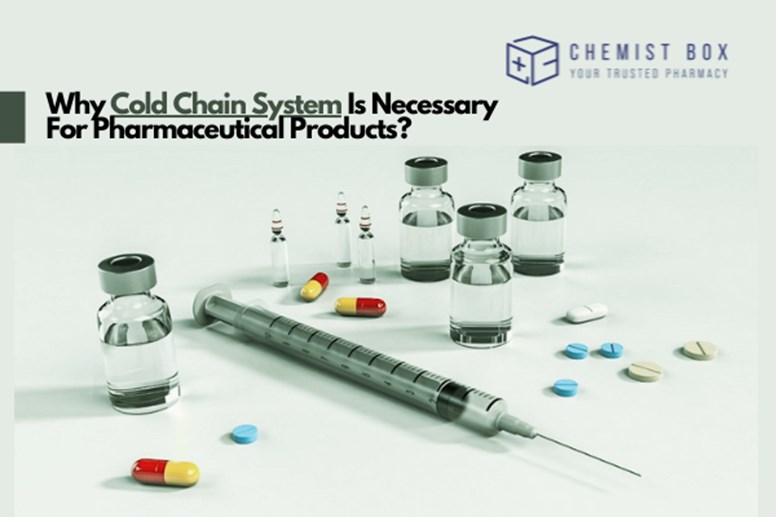Cold Chain simply is a temperature-controlled supply chain used mainly in food and pharmaceutical industry, just to ensure that the quality of the product remains the same right from its manufacture/ harvest to consumption.
Initially cold chain system or logistics were applied only in food industry, but after the importance of this in pharmaceutical industry was realized, this system was applied in Pharmaceutical industry and is still in continuation.
The global pharmaceuticals market is expected to grow over $1 trillion by 2022, taking in consideration the rising wealth levels in developing countries. It is expected that most of the growth will be seen in biologics sector of pharmaceutical industry, that is used in gene therapy. Along with the rise in growth trends, rise in losses are expected too. This loss trend can only be lowered if preventive logistic processes are implemented to protect the goods during both shipping and storing.
Improving the existing supply chains to ensure a focus on precise temperature monitoring, cold chain monitoring, and data logging can help preserve the integrity of the product, save money and provide better treatments to patients.
Why Cold Chain System Is Necessary For Pharmaceutical Industry?
Pharmaceutical products are sensitive and vulnerable to many circumstances. These products tend to lose their quality and efficiency if exposed to bright sunlight, heat or humidity. As these products contain many chemical substances, they are even sensitive to vibration and shocks.
Being sensitive, these product hold a high value for life-saving capabilities and thus it becomes must to protect and retain its quality and efficiency through its whole journey, right from manufacturing to storage, transport to store delivery and further to customers.
To maintain their efficiency, different raw materials and finished goods may need to be stored at a variety of temperatures. Any mishandling in temperature might end spoiling the product, and resulting in in vaccines that are ineffective, pharmaceuticals and other temperature-sensitive products that must be thrown away or clinical trials that lose valuable data.
Thus, to ensure the quality and efficiency of pharmaceutical products and important vaccines remains the same through its manufacture to the reach of the patient, it is necessary to apply the cold chain logistics to pharmaceutical industry.
The cold chain refers to the preservation of consistent temperatures for refrigerated vaccines from manufacture through delivery to health care facilities.
Monitoring And Maintaining Optimal Temperature
Well, Cold Chain Logistics or System is used to maintain the potency of the pharmaceutical products till it reach to health care facilities, it is also necessary to keep regulating the optimal temperature of eth cold chain logistics at intervals. During the whole process, it must be the duty of stakeholders, to optimize the temperature of the chain at each stop and maintain the vaccine’s optimal temperature range (ideally between 2°C and 8°C). The result of failing to monitor vaccine temperatures accurately—even for short periods—may result in the loss of potency or formula degradation used in the vaccines. This ultimately effects the efficiency of the vaccines making it less powerful.
What Do Studies Say?
Several previous records and studies show that cold chain system is often broken during the process of its manufacture to supply. For example, a 2015 survey from Cameroon found that only 50% of vaccines needing refrigeration were regularly monitored in 81% of health care facilities.
In one study from India:
- Only 26% of all clinics had written instructions for handling vaccines.
- Only 60% kept up-to-date temperature logs.
Monitoring And Fixing Breaks In Cold Chain Saves Time And Money
Pharmaceutical products and vaccines consume time and money in their preparation and one-mishandling in their temperature regulation, can spoil them in seconds. Ultimately, they become of no use. The media has reported numerous instances where frozen vaccines had to be discarded and patients needed revaccination.
Vaccine wastage and revaccination is much expensive. A survey in US shows that 1%–5% of vaccines wasted, costs up to $31 million. That’s too expensive!
Well, these incidents can be avoided, simply by regulating the temperature of the cold chain, and maintaining it by fixing breaks in the cold chain.



